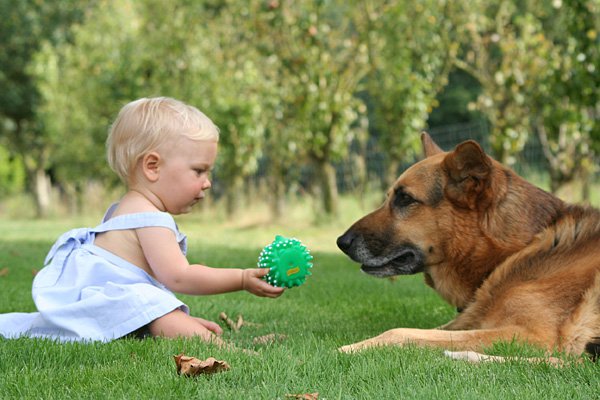
Feeding a high quality dog or cat food will add years to your pet’s life and reduce the chances of developing many common health problems. This article will help you identify and choose the best diet for your furry companion.
How do you know what dog/cat food is right? For many the choice is a homemade diet. If you have the time and the resources, I agree that this is the preferred way to go. This is usually the best, and occasionally the only choice for animals with multiple food allergies. The choice is yours whether to go cooked or raw, with bones or without.
Basically, a homemade diet should consist of 40-60% meat for dogs, 60%-90% for cats, 20-50% vegetables (dogs, or 10%-40% for cats), and the rest, optionally, grains. The choice within each category is vast, and depends on your budget, availability, and what the dog or cat prefers. Food allergies often dictate what is used.
Each dog and cat is unique and what is best for one may not work well for another. Feeding a variety of foods is the best way to provide all or most of the nutrients that your pet needs.
A good quality multi-vitamin and calcium supplements will help make sure the diet is complete. It is difficult to attain the right amount and balance of calcium to phosphorus in a home made dog food, so be sure to include some form of calcium supplement.
If you like the idea of homemade pet food, but lack the time, there are pre-mixes available, or complete ready-to-serve meals. Pre-mixes come freeze-dried, dehydrated or frozen. Usually they are grain and vegetable mixes, along with some supplements such as calcium, to which you add the meat. You can also buy frozen or freeze-dried meats, and add your own veggies and grains if you wish.
Complete raw-foods diets are also sold as frozen, dry or freeze-dried. Some areas may have local entrepreneurs who make and sell these diets fresh. They may also custom make meals to your pets specifications.
If you prefer to feed a commercial product, choose one of the many premium dog foods now available. though the cost may be higher than grocery store brands, what you save in vet bills will more than make up for the difference.
Whether to feed canned or dry pet food will depend on you and your dog or cat. Canned food is usually more expensive, kibble is more convenient. Pets usually prefer canned foods and some need the softer, wetter consistency. Canned pet foods generally contain higher quality proteins than dry pet food, and a higher percentage of protein and fat. The higher moisture content of canned foods can be beneficial to dogs and cats with kidney or urinary tract problems. Dry pet foods contain more preservatives. Some people choose to use both.
The most important criteria in choosing a pet food is the list of ingredients. Whole meats are always better then meat meals, and meat meals are preferable to by-products. Single source meals, such as “beef meal” or “chicken meal” are more wholesome than those marked simple “meat” or “poultry” meals. Single source meals contain the muscle meat from that animal, along with accompanying tissues, such as nerves, blood vessels and skin. Generic meals may contain other organ tissues and fatty tissue. By-product meal is a catch-all term for anything that doesn’t fit the other meal definitions - avoid these at all costs!
Look for the meat source (or sources) to be listed first on the label. If grains are included (which they always are in kibbles), they should be whole grains, rather than fractions, such as wheat bran, brewer’s rice, etc. Watch out for multiple listings of grains, they may add up to be more than the meat portion!
Avoid artificial flavors, colors and preservatives. Colors are added for your benefit, not to appeal to dogs. Artificial flavors are added to enhance palatability or cover up off tastes of poorer quality ingredients. Premium dog foods can be found in most natural or health food stores and pet supply stores. If you are unable to find a satisfactory dog food in stores near you, many of them can be found on the internet.
Elyse Grau is an herbalist and a long-time pet owner, well-versed in pet nutrition and feeding. She is the author of Pet Health Resource, your web guide to a healthy, happy dog or cat. The website strives to answer your holistic pet health questions through a large collection of articles.
http://www.pethealthresource.com
 4 Common Pet Problems and How to Treat Them
4 Common Pet Problems and How to Treat Them
Ju
4 Common Pet Problems and How to Treat Them
4 Common Pet Problems and How to Treat Them
Ju
 Inbreeding And Line Breeding In Cats - Why Is It Done?
Inbreeding And Li
Inbreeding And Line Breeding In Cats - Why Is It Done?
Inbreeding And Li
 What Is Pulmonary Edema In Dogs?
What Is Pulmonary
What Is Pulmonary Edema In Dogs?
What Is Pulmonary
 10 Unusual & Charming Breeds Of Guinea Pigs
10 Unusual & Char
10 Unusual & Charming Breeds Of Guinea Pigs
10 Unusual & Char
 Thirteen Interesting Facts About Your Dog’s Paws
Thirteen Interest
Thirteen Interesting Facts About Your Dog’s Paws
Thirteen Interest
Copyright © 2005-2016 Pet Information All Rights Reserved
Contact us: www162date@outlook.com